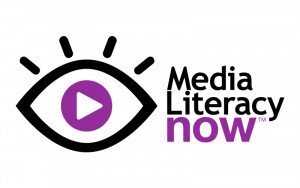Whether you’re focused on your classroom, home, community, or constituents, we have a number of resources and tools available to help you advocate for media literacy education. The MLN Resource Library is offered as one convenient source of information, like any other library.
Want to suggest a resource we should add? Use this form.
The Secret of the Vanishing Bones uses data collection and privacy awareness …
This lesson teaches through and about YouTube so children can navigate YouTube …
Students observe and reflect on photographs of “nature” and then explore how …
Students analyze messages about the impacts of climate change and some actions …
This lesson focuses on credibility. The central questions are: Can you believe …
This lesson focuses on credibility. The central questions are: Can you believe …
This is a series of six lessons. If the extension activities are …
In this lesson students begin to recognize, identify, and reflect on their …
Students learn to evaluate sources for credibility. The lesson focuses on reasons …
This lesson includes a video and instructional materials for teachers and students. …
Integrating the cross-cutting concept of size and scale with media literacy principles, …
Teachers engage students in an interactive read-aloud. Teachers model (1) pausing to …
This page has several short videos and infographics addressing scientific misinformation and …
Students form groups of three. Each group finds one wacky-sounding science story …
This resource is a photograph of people in a newsroom and a …
This is a five-minute video about cognitive bias and confirmation bias and …
This resource helps elementary school students identify different parts of online news …

